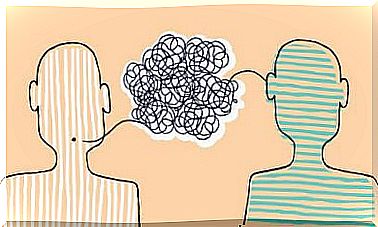The Paradox Of Happiness: What Is It And How Does It Work?

“Happiness” is one of the most used words in the world. In today’s culture, it represents the ultimate goal of many people. However, this has not always been the case. In previous living conditions, the essential purpose of life was related to virtues, descendants, or property. Today, the paradox of happiness plays a leading role.
The paradox of happiness is that almost everyone wants to be happy. However, when people are asked what happiness is, they don’t know how to define it. If you go a little further and ask yourself why you want to be happy, the answer is probably unclear. One might think that the answer would be clear because you want to achieve the goal.
If you want to make your life more complex, you can ask a third question: how is happiness achieved? There are many answers to this question based on each person’s beliefs. Perhaps professional achievement, success, and a happy marriage would be the most common answers. However, it would be difficult to concretely define how these things contribute to happiness or what you expect to happen when you find happiness.
In short, almost everyone is looking for happiness these days, but most don’t know what it is or why they want it. Moreover, they probably have only a slight idea of the path that needs to be followed to reach it. This is the great paradox of happiness.

The paradox of happiness and dissatisfaction
A professor at the University of Denver, Dr. Iris B. Mauss, did two studies to find out how people’s happiness is treated. The results of these studies are truly confusing, and they bring us closer to what is the paradox of happiness.
The first study analyzed three aspects:
- How much importance each person gave to happiness.
- External conditions in which participants lived. That is, social and professional status, meeting basic needs, etc.
- The relationship between good external conditions and a sense of happiness.
The result was that people who attached great value to happiness felt more dissatisfied, even if they had excellent external conditions in their lives. On the other hand, those who were neutral or did not give as much importance to the pursuit of happiness felt more satisfied. This happened even if their lives had been more difficult. These conclusions demonstrate the essence of the paradox of happiness.

Happiness and loneliness
The researchers conducted another similar study at the University of Denver. In this case, it was not satisfaction that was measured, but how lonely those who gave great importance to happiness and those who did not gave themselves felt.
The results were very similar to those in the first study. People who aspired to happiness felt stronger loneliness, while those who did not give it so much importance did not experience it. That is, they did not feel particularly lonely.
The first conclusion is that those who are urgently looking for happiness focus too much on themselves. The search for success and fulfillment breaks the bond with others. This reinforces the feeling of loneliness. Here, too, the paradox of happiness can be stated.

Coordinates of happiness
Interesting conclusions can be drawn from these studies. The first, and perhaps most important, is that external achievements are not a source of happiness. Therefore, many people only feel satisfied for a short time after they have received something they wanted. After a while, they may feel nauseous, causing them to set a new goal for themselves and create an endless cycle.
Happiness, then, is a process that flows in us. It is a reality that is only partly related to external achievements. Perhaps many are tirelessly looking for happiness because they want to end their own eternal dissatisfaction. They do not understand that the paradise they are looking for is within themselves.
On the other hand, research allows us to conclude that idealizing the concept of happiness only leads to frustration. Those who accept that happiness is only a part of life manage to feel more satisfied. Lasting happiness should not be the goal, because that is what makes it unattainable. This helps us to accept reality as it is and thus feel more satisfied more often.
What we vaguely call happiness, that feeling of joy and fulfillment, is something that only happens occasionally. Anyway, when we decide to be the best version of ourselves, happiness comes to us as if by ourselves.









